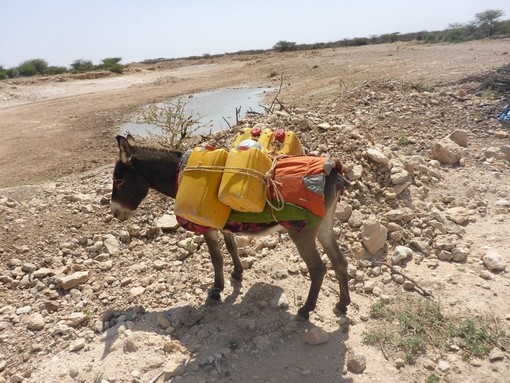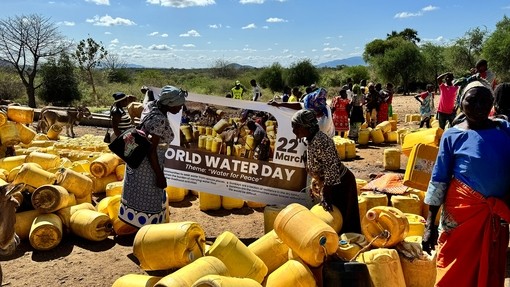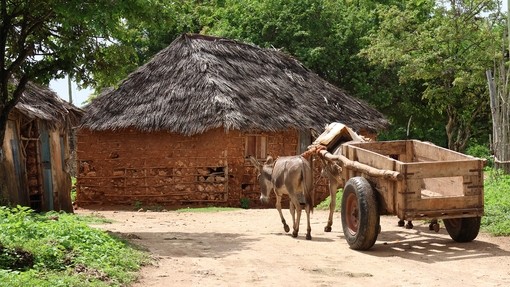
Campaigned for the introduction of a new law protecting donkeys’ welfare
Acting to help injured donkeys is an important part of our work, but so too is advocating policy change to protect their welfare – for example, raising the status of downtrodden donkeys in Somaliland has been handed a boost thanks to the introduction of a new by-law, championed by The Donkey Sanctuary’s in-country partner.
Thanks to your support, we have been able to back the Social & Animal Welfare Service (SAWS) in its mission to bring in a donkey welfare by-law in the Burcao district, where negative myths, inhumane practices and malnutrition have left donkeys to suffer in silence for years, in spite of the vital role that they play.
Donkeys support the poorest people in the community by pulling carts of goods, firewood, building materials, and by taking waste from local restaurants. Often young boys without a comprehensive education, the donkeys’ owners and handlers have no other source of income and earn less than £55 a week.
The by-law is the first of its kind in Somaliland, and its introduction was a key milestone for animal welfare progress, but now work is needed to ensure it has a real and lasting impact for thousands of affected donkeys.
The Donkey Sanctuary has agreed to fund a programme of work which aims to promote and enforce the by-law for working donkeys to prevent them from abuse, cruelty, maltreatment and abandonment in the future.
Hassan Mohamed Aden, SAWS executive director, says: “Donkeys have not been given the care they deserve in terms of development, regardless of the vital role they play in the socioeconomic life of the poor people. In general, very little is known about working donkeys; they are given less consideration than other species of livestock, they are neglected in allocation of resources such as food, shelter and equipment because they belong to the poorest members of the Somali society.”
Behaviour change among communities is rarely immediate, but this project will educate donkey owners, vet students, local authorities and community leaders about the new legislation through workshops, leaflets, implementation sessions and media broadcasts on television, radio, print and digital, while constantly monitoring the welfare of the region’s donkeys to measure its impact.
Help us support more donkeys in need
Donate todayShare this page
Tags
- News






